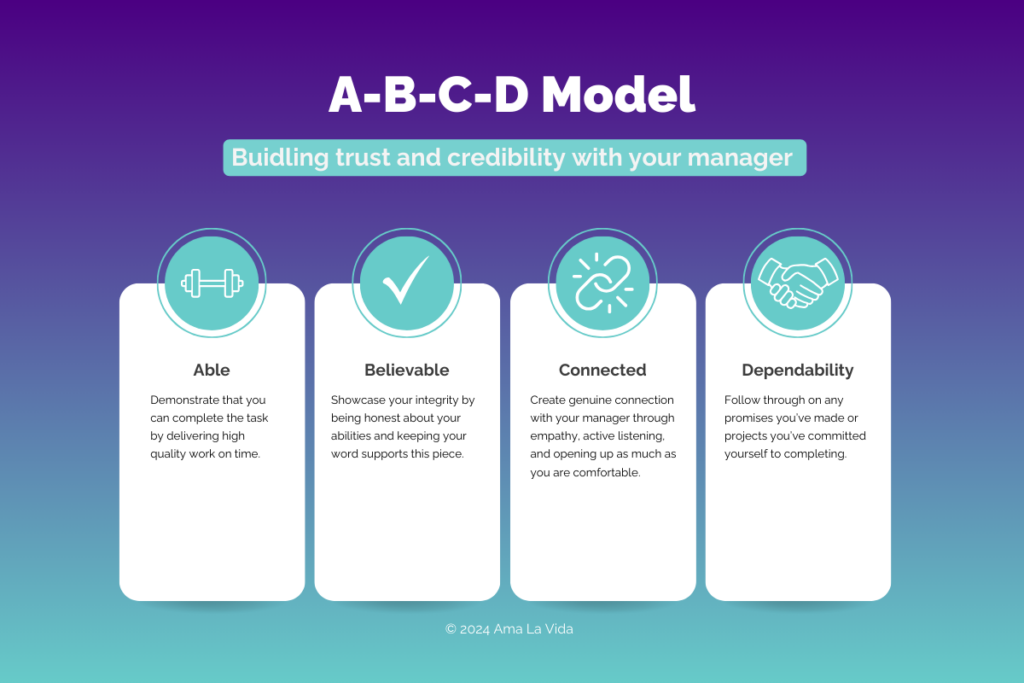How Managing Up Can Change Your Career
Achieving Goals, Career Enrichment, Confidence, Self Awareness

In today’s competitive job market, mastering the art of managing up is essential for career advancement and success.
But what exactly does it mean to manage up? And how can individuals navigate this skill to thrive in their professional lives?
Understanding why managing up is hard can shed light on the intricacies involved in fostering effective relationships with your managers. Let’s debunk common myths, explore the benefits, and review the consequences of neglecting this vital skill. Then we can delve into the five best steps to empower you in how to manage up effectively and propel your career to new heights.
Why Managing Up Is Hard
Managing up isn’t merely about pleasing your manager; it involves aligning your efforts with their goals, preferences, and communication styles.
The dynamic nature of workplace relationships, coupled with varying managerial personalities and expectations, can make navigating this terrain difficult. According to an article by Harvard Business Review, many employees are nervous about managing up because it sounds like extra time that most people don’t have in a day.
Continue reading for actionable steps to make it easier.
Debunking Myths About Managing Up
Before diving into the actionable steps for successfully managing up, let’s address common misconceptions that can hinder your progress. By dispelling these myths, we can pave the way for a clearer understanding of what managing up truly means.
Myth 1: Managing up is synonymous with brown-nosing.
Reality: Managing up is about building rapport, trust, and collaboration with your superiors, which fosters a mutually beneficial relationship. According to Forbes, effective managing up involves advocating for your ideas and contributing to the success of the team.

Myth 2: Managing up is only necessary for career climbers.
Reality: A report by Gallup suggests that employees who have one meaningful conversation per week with their managers are more productive and fulfilled in their roles. When your manager sees your desire to support their goals, they will demonstrate more support towards you. Managing up is essential for professionals at all levels, ensuring effective communication, creating alignment, demonstrating your personal brand and productivity within teams.
The Benefits of Effective Managing Up
Now that we’ve debunked common myths about managing up, let’s explore the significant advantages that mastering this skill can bring to your career. By understanding these benefits, you’ll be motivated to invest time and effort into honing your managing up abilities.

Enhanced Communication Skills:
Mastering the art of managing up cultivates active listening, clear communication, and empathy, invaluable assets in any professional setting. In research published by Bucata and Rizescu (2017), they determined that effective communication with managers leads to greater organizational performance which is a benefit for you and your employer.
Career Advancement Opportunities:
A survey by Ladders (2019) found that 86% of “high-earning professionals” felt that managing up positively impacted their ability to be considered for promotions. Managing up will increase visibility, foster trust, and will position you as a valuable asset within your organization, paving the way for career growth and development.
Improved Workplace Dynamics:
Building strong relationships with your managers promotes a positive work environment, fosters collaboration, and enhances overall team productivity and satisfaction. Improving your manager relationship creates a more efficient workplace with greater team collaboration.

Consequences of Ineffective Managing Up
Neglecting to manage up effectively can have dire consequences.
Miscommunication, misunderstandings, and a lack of alignment with your manager’s expectations can lead to decreased productivity, and missed opportunities for career advancement. Also, poor managing up skills can strain the manager/employee relationship by giving the impression that you are unresponsive, unreliable, or disengaged.
This impacts your credibility with your colleagues and your manager.

5 Steps to Successfully Managing Up
Now that we’ve explored the benefits of effectively managing up, let’s review five managing up strategies you can take to master this essential skill. By following these steps, you’ll be equipped with the tools and strategies needed to navigate your relationship with your manager and move your career forward.
1. Understand Your Manager’s Goals and Preferences:
Take the time to familiarize yourself with your manager’s priorities, communication style, and expectations.
Utilize tools like the DiSC assessment to gain insight into your manager’s behavioral preferences and adapt your approach accordingly. Another idea is to schedule a one-on-one meeting with your manager to discuss their short-term and long-term goals, and how you can align your efforts to support them.
2. Communicate Effectively:
Maintain open lines of communication with your manager. This includes seeking feedback, and clarifying expectations as needed and, most important, providing proactive updates is key.
For example, set up a weekly check-in meeting with your manager to provide updates on your projects and discuss any challenges or concerns you may have. Read this post for more ideas on what proactive communication might look like.
3. Build Trust and Credibility:
Demonstrate reliability, accountability, and integrity in your actions, which will allow you to earn the trust and respect of your superiors as referenced in this post.
A great tool to assess and enhance your trustworthiness is the ABCD Model by Ken Blanchard, Cynthia Olmstead, and Martha Lawrence.

“A” stands for able and you demonstrate that you can complete the task.
“B” refers to believable and this comes from your integrity. Being honest about your abilities and keeping your word supports this piece.
Connected is what the “C” means in the model. Building connections requires not only your communications skills but also giving trust to others.
Finally, the “D” is your demonstration of dependability. This requires that you follow through with what you say you are going to do.
Using this model will allow you to build trust with your manager.
4. Adapt to Your Manager’s Style:
Tailor your approach to fit your manager’s communication and leadership style, fostering better rapport and collaboration. For example, if your manager prefers concise communication, prepare brief status updates or reports for them instead of lengthy emails or presentations.
5. Be Solutions-Oriented:
Instead of dwelling on problems, focus on identifying solutions and opportunities for improvement, showcasing your initiative and problem-solving skills.
Utilize techniques like the Five Whys or SWOT analysis to identify root causes and develop actionable solutions to address them.
Offer to lead brainstorming sessions or initiative implementation teams to demonstrate your proactive approach to problem-solving and innovation.
Measuring Your Success with Managing Up
Before concluding our journey through the art of managing up, it’s essential to understand how you can gauge your progress and effectiveness in this crucial skill. By implementing these methods of measurement, you can track your growth and ensure that you’re on the right path toward career success.
Feedback from Your Manager:
Regular feedback and praise from your manager indicate that you’re effectively managing up and meeting their expectations.
During your regularly scheduled one-on-one meetings with your manager, ask for feedback, and discuss your performance and development goals.

Increased Responsibility:
If you’re entrusted with more autonomy, responsibility, or opportunities for growth, it’s a clear sign that your efforts are paying off.
Keep track of your expanded responsibilities and accomplishments using tools like a performance journal or brag book.
Improved Relationship:
A positive and collaborative relationship with your manager, characterized by trust and open communication, signifies success in managing up. Utilize tools like the Relationship Grid to assess the quality of your relationship with your manager and identify areas for improvement.
Mastering the art of managing up is essential for career success and personal growth. By understanding the challenges, debunking myths, embracing the benefits, and implementing actionable steps, you can navigate this terrain with confidence and achieve your professional aspirations. Want to take your understanding even further? Keep reading at The Ultimate Guide to Managing Up.
Ready to embark on your journey of effectively managing up? Book a free consultation today to get started with a career coach and watch as your career flourishes and your professional relationships thrive.


